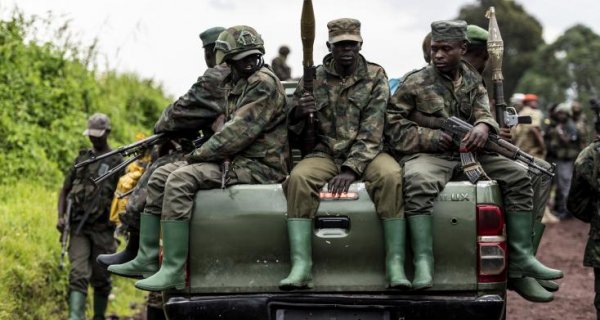In a summary of the situation in eastern Congo, the role of the M23 rebel group and Rwanda, the group of academics and experts from Cedesa – the Centre for Studies on Economic and Social Development in Africa – points to this as one of three possible working hypotheses for rebuilding peace in eastern DR Congo.
“Any solution will be the lesser evil,” they say, and the first would be the “separation/secession of the eastern part” of the country, thus creating a new state that “would possibly come under the influence of Rwanda, or at least sign a free trade agreement with Kigali.” A solution that “would not please Kinshasa”, the academics stress, referring to the capital and centre of power of the DR Congo.
The second option would be “to keep eastern Congo as an integral part of the DR Congo, but grant it a more autonomous status and allow the area to be part of a free trade area or economic integration with Rwanda”, they say.
The third option “would require military intervention by Angola, in order to train and reinforce the DR Congo army, possibly with the involvement of the United States of America”.
This option would also require “reforms, towards good governance in the DR Congo” and “some kind of economic agreement with Rwanda”, without which they consider “it would not be possible to guarantee lasting peace”.
The eastern DR Congo, rich in minerals, has been the scene of violence for 30 years. But since November 2021, the M23, an armed group supported by Rwanda and its army, has seized vast areas of that territory of the DR Congo.
Angola has hosted, since 2020, several summits to achieve peace in the region, as part of the regional efforts promoted by the organizations of which it is a member, such as the International Conference on the Great Lakes Region (ICGLR) and the African Union (AU), and intends to breathe new life into the negotiation rounds to put an end to the tensions between the two countries.
President João Lourenço, as mediator appointed by the African Union, has tried to reach a ceasefire, calling for dialogue between the parties involved and promoting initiatives to stabilize the Great Lakes region, including the Luanda Process.
However, in the opinion of Cedesa, this commitment by Angola and the President has only managed to avoid "a total and direct confrontation between the Democratic Republic of the Congo and Rwanda". And the situation, in the opinion of the group of academics, tends to worsen.
In this document, which Lusa had access to, Cedesa also issues a warning, considering that this "unknown or ignored war" by the West "may, in the medium term, have very significant impacts on the entire energy transition policy and use of new technologies across the globe", and stressing that in the area where it is taking place it is already having "a devastating effect".
In addition to Rwanda's political objectives, "linked to the projection of the country's power, prestige and the fight against opposition forces in the DR Congo, there is a key fact that sharpens Rwanda's interest and is probably linked to its survival as a viable and sustainable country, with high growth rates", say the experts.
And Rwanda, they conclude, "needs access to minerals from the conflict zone in Eastern Congo to sustain its economic growth".







